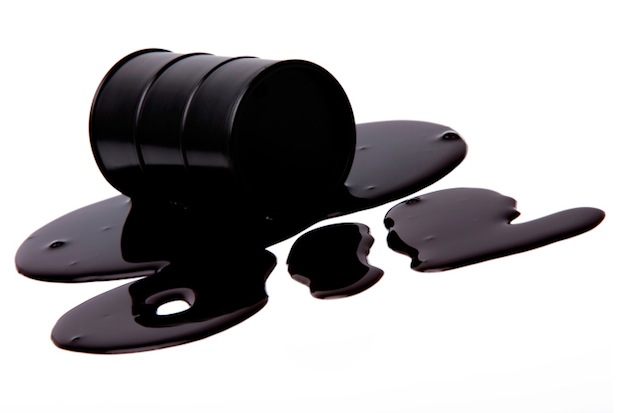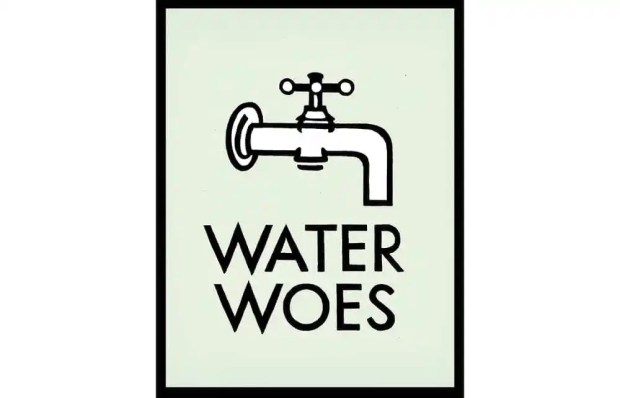‘Iraq turmoil sends crude oil prices to nine-month high’ is the sort of headline that used to send shivers down economists’ spines, especially if it appeared on the same page as ‘Europe faces gas shortage as Russia cuts Ukraine supply’. How worried should we be at the current turn of events in the energy world?
Since Iraq’s new insurgency kicked off, the price of a barrel of Brent Crude has blipped from $105 to $115 — nothing to panic about — but the more pessimistic analysts are talking of a further $30 rise if Iraqi oil flows of 3.6 million barrels a day (representing about 4 per cent of global demand) are seriously disrupted. That really will constitute a ‘spike’, and will have us all blowing the dust off studies written in the 1990s by Professor Andrew Oswald of Warwick University, who plotted half a century of oil prices against US employment and other data and found that spikes were invariably followed, after a short time-lag, by recessions. Oswald has long since moved on to the study of ‘emotional prosperity’, but his thesis looked good again in 2008 (even if cause and effect was by no means direct) when a speculative high of $147 preceded that autumn’s financial meltdown.
Since 2011 — as BP chief economist Christof Rühl pointed out this week — the world has enjoyed a period of relative oil-price stability within the $100–$120 range. By historic standards that’s expensive, but the absence of volatility (combined with improved energy efficiency throughout the developed world) has clearly encouraged investment and contributed to economic recovery. The new factor in the equation, counterbalancing tensions over both Iran and Iraq, has been resurgent US energy production, which with the addition of the ample fruits of shale-gas fracking has climbed back to match its 1970s peak of 11.3 billion barrels a day.
Output from UK sectors of the North Sea, meanwhile, has dwindled below a million barrels a day to a third of the peak levels of a generation ago, while our consumption runs at about one-and-a-half million barrels. Once again I feel obliged to scour the horizon for thunderbolts: last week, cyber-threats; this week, I return to my theme of our chronic weakness in energy security. Don’t all these numbers make you wonder, as I do, whether it might be sensible to press on more determinedly to exploit the proven reserves of shale gas in the north-west of England and shale oil under the Weald?
And while I’m on my hobbyhorse, let’s not assume that the Hinkley Point nuclear power station is cruising towards its royal ribbon-cutting in 2023 just because it was finally signed off by ministers and planning authorities a few months ago. Protestors are currently fighting its proposed pylon connection to the national grid, and will no doubt find many other features to oppose, making investors ever more wary of the nuclear sector. These issues are hugely important for our future prosperity, emotional and otherwise, but progress towards certainty of UK supplies of fuel and power is negligible, and I suspect will hardly be mentioned in next year’s general election campaign. That’s why I shall keep banging on about it.
Unwelcome challengers
TSB, the new bank formed from the 631 Lloyds branches that Brussels insisted must be sold off but the Co-op proved unfit to buy, was being ‘priced to go’ below its book value in the flotation of 25 per cent of its shares this week. That news, combined with Governor Carney’s indication that interest rates will rise soon (potentially boosting TSB’s profit margins), had the effect of perking up interest in the offer, so that the final price may be fixed higher than first indicated.
Treasury ministers will watch to see whether the financiers advising Lloyds are capable of finessing the price to provoke neither a Royal Mail-style feeding frenzy and parliamentary post-mortem, nor an embarrassing flopperoo — with an eye to the sell-off of the remaining 75 per cent of TSB next year and the eventual disposal of the taxpayers’ stake in the parent Lloyds. But if I was a minister I would be more concerned about the wider development of ‘challenger banks’, of which TSB can claim to be one and Williams & Glyn, due to be carved out of RBS and floated in 2016, will be another.
The hottest mover in this field turns out to be Tesco, which has launched an online current account with Clubcard gimmicks — another move by the supermarket giant to combat fast-declining customer loyalty. Marks & Spencer is in the game, too. But the challenger sector is so far a disappointment to those of us who hoped the financial crisis might give birth to a new generation of smaller, locally based banks, built on authentic customer service rather than systems-driven retail engineering and too-good-to-last introductory offers.
Healthy saplings such as Metro Bank in London and the Handelsbanken branch network are overshadowed by a sudden proliferation of payday lenders and pushers of loans by mobile phone, loans against car logbooks and usurious, unaffordable debt in a dozen other forms. Those are the challengers no one invited.
Death spiral
For those concerned that rising house values will drag them over the £325,000 inheritance tax threshold, and that the Conservatives will never be brave enough to repeat David Cameron’s pre-election promise to raise the threshold to £1 million so that only ‘the rich’ will pay, there is a consolation: the Grim Reaper may not be as close as you think. Blame it on global warming if you like, but the number of deaths registered in England and Wales in the first five months of this year was almost 10 per cent down on last year. That’s happy news unless you happen to be in the funeral business — of which the UK market leader, with 926 branches and £370 million of turnover last year, is none other than the Co-operative Group. Oh dear, can death itself be conspiring in the troubled mutual’s death spiral?
Got something to add? Join the discussion and comment below.
Get 10 issues for just $10
Subscribe to The Spectator Australia today for the next 10 magazine issues, plus full online access, for just $10.
You might disagree with half of it, but you’ll enjoy reading all of it. Try your first month for free, then just $2 a week for the remainder of your first year.















Comments
Don't miss out
Join the conversation with other Spectator Australia readers. Subscribe to leave a comment.
SUBSCRIBEAlready a subscriber? Log in